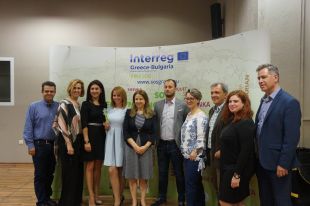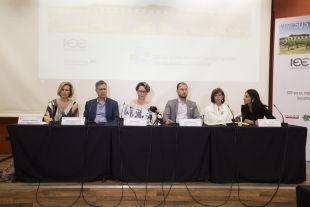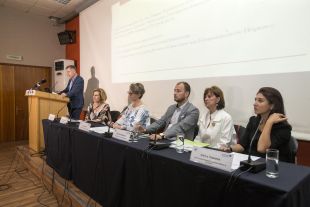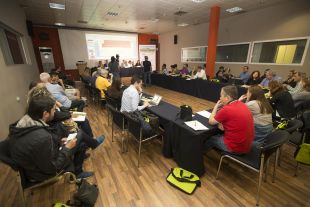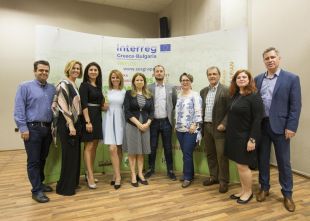Opening press conference of the project " SOS for endangered traditional varieties of vines"

Opening press conferences was held in on 09.05.2018 Sandanski, Bulgaria and on 10.05.2018 Thessaloniki, Greece of the project "SOS for endangered traditional varieties of vines.
The VineSOS project addresses the main problems and challenges in the Greek-Bulgarian cross-border area, related to the local biodiversity and vine varieties, especially those within Natura 2000 sites.
The high level of local biodiversity is threatened by the loss of genetic resources due to climate change and human activities related to agriculture, tourism and urban development. Local vine varieties, notwithstanding the fact that they demonstrate excellent adaptation to the microenvironment, are threatened by reduction or even disappearance as a result of the introduction of new varieties and contemporary wine production techniques.
The main project objective is to promote a comprehensive intervention mechanism that will enable the long term conservation of vines and establish a CB conservation policy for local vine varieties, based on molecular data and on-site research. Through joint recommendations to relevant authorities, the project aims at the development of the conditions for the establishment of PDO accreditation for the local varieties. The project also aims at compiling an Ampelographic book recording the main characters of local vine varieties as well as developing a set of guidelines for sustainable agricultural practices in Greek, Bulgarian, English and Braille. Finally, the sustainability of the project will be ensured by a Training Center, which will provide training and organize workshops for stakeholders in experimental fields and online.
The project partners are:
-
The Executive Agency on Vine and Wine, Bulgaria (Lead Partner)
-
The Union of Eonologists, Bulgaria
-
The Association Prosperity and Development, Bulgaria
-
The Exhibition Research Institute, Greece
-
The Alexander Technological Educational Institute of Thessaloniki-Dpt. of Agricultural Technology, Greece
The project is co-financed by the European Regional Development Fund and national funds of the Interreg VA Greece-Bulgaria 2014-2020 countries http://www.greece-bulgaria.eu/.
The content of this material does not necessarily reflect the official position of the European Union.
